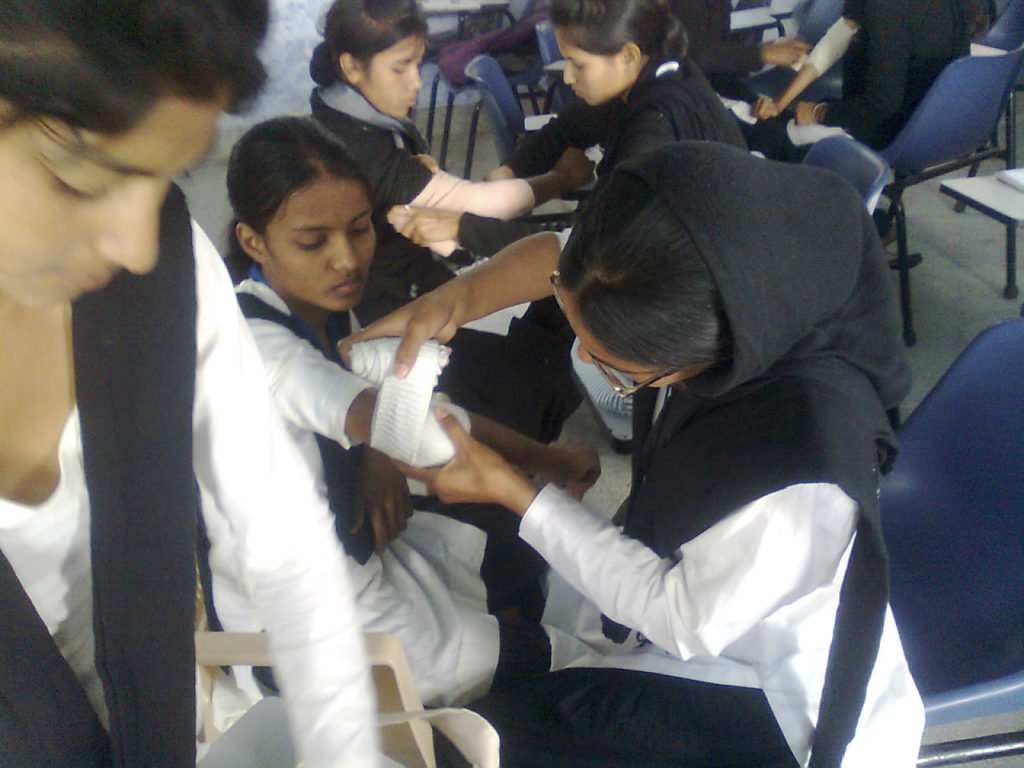By Natalie Sarrett
Fiona is a 25-year-old girl living in a slum in South Asia.
She was diagnosed with cancer while in the final stages of planning for her wedding, and within hours, her entire future was re-written.
But Fiona is a fighter.
Send Relief partners helped Fiona navigate her diagnosis throughout the entire process, surgery to recovery, and not once did she give in to despair. The medical team says that they can only remember her having a smile on her face, even during difficult chemo sessions.
The slum where Fiona was raised is considered one of the worst in South Asia.
One in every three children experience stunted growth, and nearly 10% are severely undernourished. The extreme poverty and unclean living conditions make this population extremely vulnerable to diseases, and few can afford the trip into the city’s health clinics for proper medical attention. Some have tried to take advantage of this dire situation by pretending to have medical licenses and giving out false diagnoses and fake medication, further stoking the community’s distrust of healthcare professionals.
A simple illness like the common cold can cause someone to lose their job, develop a permanent disability or even die.
Because of the patriarchal society, women and children are more medically disadvantaged than men because of their financial dependence, as well as the fact that many women aren’t allowed to attend health clinics without the presence of a husband, father or brother.
Your gifts helped Send Relief partners establish a holistic health center in this slum where men, women and children are equally welcomed and cared for physically, mentally and spiritually. News of this center and its revolutionary practices spread, and it is now equipped to not only serve the original population but the surrounding 11 slums as well!
Nutrition initiatives, mental health counseling and eyesight restoration are just a few of the services offered on a daily basis at the health center, but what the clinic has truly become known for is the compassion of the workers. People come to share their problems and trust the nurses and doctors with their families’ wellbeing. Soon after establishing a presence in the community, the clinic was so overrun with work that 10 mobile clinics and 7 health camps were created to serve the populations right where they were, so families wouldn’t have to figure out travel arrangements. This removed a huge barrier to services, and today, more than 60,000 people have been helped!
Women now have a safe place to discuss women’s health and childcare with their peers. The rate of survival in toddlers and newborns has improved drastically. Men are getting healthier and recovering more quickly after being ill, meaning they can return to work and ensure their families’ financial wellbeing more readily. Finally, families are learning preventative care and basic hygiene practices to help them avoid requiring medical attention in the first place.
Pray for the children living in these slums to be brought up in a stable and empowering family. Pray for the women to have more opportunities to become self-sufficient and pray for men in this community who have become addicted to alcohol and drugs to find recovery soon.
To contribute to more life-giving projects like this in South Asia, give at sendrelief.org/donate now.
Published September 25, 2020
